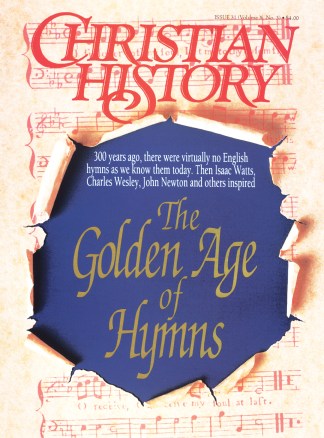Charles and John Wesley in some ways presaged the later romantic movement, with its emphases on the lower classes, upheaval, and above all, imagination and strong feelings.
Lower classes: Contemporary with the Wesleys was Jean Jacques Rousseau and his romanticized “noble savage.” (John Wesley found himself disabused of this notion in America; he reported, “All except perhaps the Choctaws are gluttons, thieves, dissemblers, liars.”) Yet the clientele of the Wesleys were usually commoners. Charles Wesley penned: “Outcasts of men, to you I call, / Harlots and publicans and thieves.”
Upheaval: The spirit of the French revolutions of 1789 and 1830 is captured in Delacroix’s painting Liberty Guiding the People (a bare-breasted French woman with Phrygian cap and musket, leading the onslaught). England was spared such revolutionary political upheaval; many church historians have argued that it was because of the spiritual revolution, linked to the Wesleys, that swept the country. Drunkards, wife beaters, and rabble-rousers found their lives revolutionized by the Wesleys’ message.
Emotion: Eighteenth-century poetry had been “held in the Arctic grip of [Alexander Pope’s] heroic couplet,” according to Ernest Rattenbury. Yet the second stanza of Charles’s conversion hymn captures the distinctive Wesleyan trademark of feeling: “O how shall I the goodness tell, / Father, which Thou to me hast showed, / That I, a child of wrath and hell, / I should be called a child of God! /Should know, should feel my sins forgiven / Blest with this antepast of heaven!” Similarly, in one stanza omitted from “And Can It Be,” a couplet asserts: “I feel the life His wounds impart; I feel the Saviour in my heart.”
Dr. James Townsend is Bible editor at David C. Cook Publishing Co. and author of eight volumes in The Bible Mastery Series (Cook).
Copyright © 1991 by the author or Christianity Today/Christian History magazine.Click here for reprint information on Christian History.










